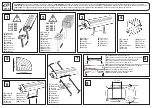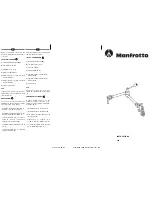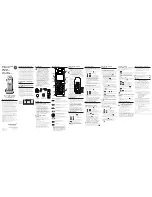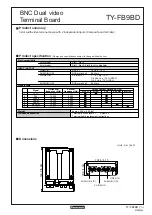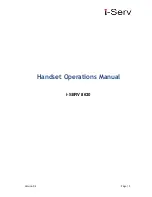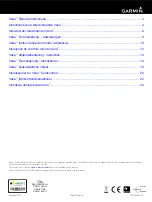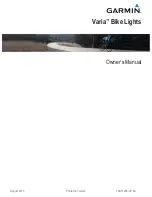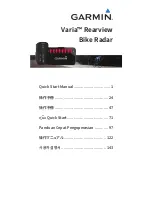
4
MN-333
Installing the Load Controller II System
RECOMMENDED COMPRESSOR LOCATIONS
Important
LOCATE COMPRESSOR IN DRY, PROTECTED AREA ON VEHICLE.
DIRECT SPLASH OR EXCESSIVE MOISTURE CAN DAMAGE
THE COMPRESSOR AND CAUSE SYSTEM FAILURE.
Disclaimer: If you choose to mount the compressor outside the vehicle please keep in
mind the compressor body must be shielded from direct splash and the intake should be
snorkeled inside the vehicle. If the compressor does not include a remote mount air filter or
if mounting the compressor outside the vehicle, make sure to orient the compressor intake
filter so that all moisture can easily drain.
Please also remember . . .
• To avoid high heat environments.
• To avoid mounting the compressor under the hood.
• To check to be sure the compressor harness #2 will reach the compressor and connect
to harness #1.
The compressor can be mounted in any position — vertical, upside down, sideways, etc.
(please refer to the instruction manual).
GETTING STARTED
This part of the installation should be done after the air spring kit is installed . If you
have any questions, please call Air Lift customer service at (800) 248-0892 .
If you are adding this control system to an Air Lift LoadLifter 5000™ application, then no
modifications to the low pressure sensor are necessary. If you are adding this control system
to an Air Lift 1000™ or RideControl™ application, and if your specific application requires a
minimum of 10 PSI (0.7 Bar), then it will be necessary to adjust the low pressure sensor to
10 PSI (0.7 Bar). To increase the pressure in the low pressure sensor, remove the rubber
plug with pliers (Fig. 2). Using an allen wrench, turn the screw clockwise 4 1/4 turns (Fig.
3). Push the rubber plug back into the top of the low pressure sensor. Proceed with the step
by step installation instructions.
Do not cut, trim, modify, or disassemble the harness. If you have excess length, simply coil
it up and secure out of the way with the provided tie straps. All preassembled gauge panels
have been 100% leak and function tested. DO NOT attempt to tighten, loosen, or adjust any
fittings or connections. This will likely cause a leak or malfunction and void the warranty.
fig. 2
Remove
rubber cap
fig. 3
Turn allen screw 4 ¼
turns clockwise
Load Controller II
Содержание 25592
Страница 2: ......
Страница 13: ...11 MN 333 Notes Load Controller II...
Страница 14: ...12 MN 333 Notes Load Controller II...
Страница 15: ......

















